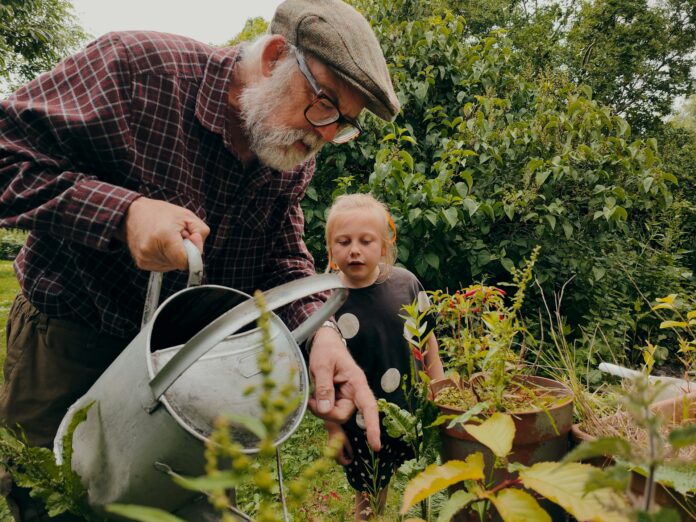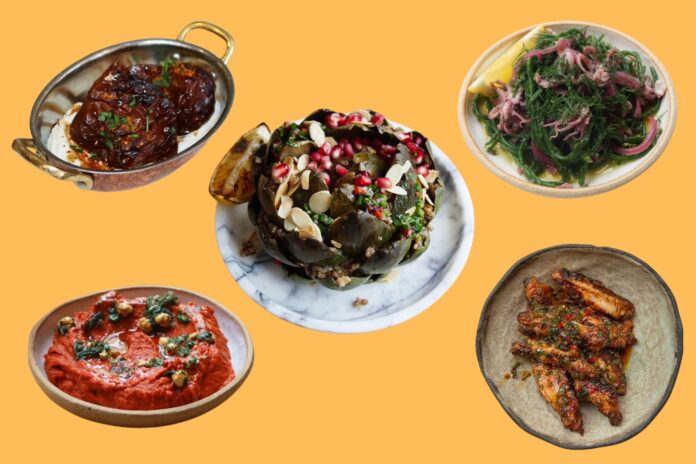It feels like a sense of control has been rather difficult to come by in the last couple of years, don’t you think? And after a festive season defined by a collective letting off of steam, many are entering 2023 concerned that they’ve let their usual composed demeanour get away from them.
With January traditionally a time of rest and rejuvenation, new perspectives and new priorities, if you’re looking to realign what’s important to you as 2023 rolls into view, here are 5 ways you can take control of your life in the new year.
SET SOME GOALS
The idea of New Year’s Resolutions can sometimes provoke an eye-roll, and with good reason. We’ve all been there and done that, made a list of those big changes we want to enact, only to give up on them before January’s out.
But there is a big difference between coming up with a list of vague ambitions and getting some clear goals – with dates, times, figures and amounts – down on paper. So, instead of simply pledging to ‘drink less’ or ‘get fit’, consider putting something tangible on that new year’s resolutions list.
The most important thing to remember is that effective goals should be achievable, and they should have a framework under them to get you where you need to go.
So, say that you want to run a marathon this summer, or indeed the London Marathon in October. Firstly, look at your current fitness level and be honest with yourself about how much work you need to do to get to where you need to be. How much time is it going to take? What sort of hours will you need to put in? How will you respond to setbacks?
Break it down into manageable chunks and remember that you may need to start slowly at first. Having a concrete goal set in the distance will keep you dedicated, with your eye firmly on the prize, or, in this case, the finish line.
Whatever you are working towards, try to schedule some time towards it every day, and remember that it is a literal marathon, not a sprint.

NUTRITIONAL KNOW-HOW
January diets can be something of a drag. Do we really need to make what is traditionally the bleakest period of the year even bleaker with a bout of self-imposed abstinence and asceticism?
Taking back control of your diet after the festive season’s frivolity and indulgence needn’t mean denying yourself any and all treats.
It’s time to open your arms to a winter diet and we’re not talking about revisiting the excesses of Christmas, mince pies, Quality Street, turkey sarnies, and the rest. No, we’re talking about simply eating what is good, fresh and local when it’s at its best. Nothing more, nothing less.
The great thing about adapting your diet to the seasons is that fruit, vegetables, game and fish are forever changing in their quality and availability, so you’ll be keeping your diet varied, and constantly learning new recipes to suit what’s just come into season. It’s also a way to imbue some kind of meaning into what is otherwise a pretty grim, uneventful time of year.
January sees some superb stuff at its prime; Jerusalem artichokes, venison, beetroot, Brussel sprouts, turbot, blood orange, kale, celeriac…it’s like a Rolls-Royce-roll-call of the best ingredients around, all at their peak right now.
Read: 5 thrifty, healthy meal ideas using seasonal food for January

BANISH THE BURNOUT & PRIORITISE SLEEP
We’ve all seen a slew of articles about burnout over the last couple of years (hey, we’ve written a lot of them) and the chances are good that you will be familiar with the symptoms yourself.
One of the best ways to tackle stress and banish burnout is to resolve to prioritise your sleep this year. The value of a good night’s rest cannot be emphasised enough. So, we’ll emphasise it again, for those nodding off at the back; sleep is essential in reducing stress. This is because it is the time for your body to regulate cortisol (the stress hormone) levels. And as if by magic, you will biologically be less stressed when you have enjoyed a regular run of proper, restful sleep.
Most adults need between 7 and 9 hours of sleep each night. For those struggling to reach those magic numbers, there are a range of natural sleep supplements out there that might help, including herbal tea, L-Theanine and melatonin, the latter of which, it should be noted, is prescription only.
FIND (OR EVEN DEMAND) THAT WORK-LIFE BALANCE
One of the most common complaints to emerge over the last two years has been the erosion of the space between our work and our personal lives. When we started working from home, there were many people out there who enjoyed being able to roll out of bed and straight into work.
However, now that we are many months on and there is still no sign of an end to remote working, we are all feeling the pressure. It can be all too tempting to keep checking those work emails after you have signed off for the day. It is very easy to tell yourself that you will put another hour or two in on that project after you’ve had your dinner. But this is another way that burnout can creep in, and it is another way that you can feel like you are losing control over your life.
Start getting strict about your time. Make sure that you sign in on time and that you are just as punctual about logging off. Take your lunch break and actually use it instead of eating a sandwich at your desk. Set your alarm an hour earlier and use that time to get out of the house for some exercise or to work on a personal project.
Above all, make sure that you’re keeping your weekends just for you. It can be all too easy to let your work seep into your personal space, but if you can work on reinforcing that dividing line, you will start to feel a greater sense of control.
Read: 7 IDEAL tips for managing your work-life balance during coronavirus
GET BACK OUT THERE
We don’t need to remind you that we’ve all spent far too much time in our own homes and in our own company over the last couple of years (actually, we realise we have reminded you several times already).
With things the way they are, there are perfectly reasonable justifications for keeping on the safe side and sticking to that indoor routine. But it’s also important to make sure that you’re spending some time with nature, as this can be rewarding, fulfilling and hugely beneficial for your spirit and outlook.
In fact, it’s often suggested that getting into nature, whether that’s a trip to a local forest or a walk on the beach, should be prescribed by doctors as a way of alleviating low mood. According to Professor Ruth Garside at the European Centre for Environment & Human Health at the University of Exeter, “Our own research has shown that spending time in green and blue spaces can significantly benefit mental health, and reduce anxiety and depression’’. We’re not going to argue with that!
If you needed any more convincing, check out these 5 reasons to spend more time outside. And then, put the screen down and get out there!





